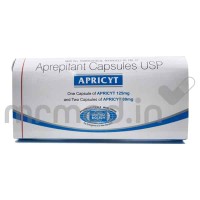Hepsure Sachet 8gm contains active components called L-Isoleucine, L-Leucine and L-Valine. It improves the quality of life and nutritional status in patients with liver disorders such as nonalcoholic fatty liver disease (NAFLD), hepatic encephalopathy, and end-stage liver disease. It also promotes lean muscle growth and maintains muscle during exercise. Hepatic encephalopathy (HE) is a brain disorder caused by liver dysfunction. This medication can improve nutritional status and reduce muscle wasting in patients with hepatitis C. It can be used to promote wound healing and reduce muscle loss in patients with burn injuries.
If you are allergic to any of the ingredients in this medication, you should not take Hepsure Sachet 8gm. People with maple syrup urine disease(MSUD) should not take this medication. It should also be avoided by patients with advanced liver disease, such as those with cirrhosis and severe kidney disease. It may affect blood sugar levels. People with diabetes should monitor their blood sugar levels closely when taking this medication. L- Isoleucine + L-Leucine + L-Valine (BCAA) should be used cautiously in the elderly, especially those with underlying medical conditions. It is not recommended for children under the age of 18.
Therapeutic Effects of Hepsure Sachet 8gm
Pregnancy
There is limited information on the safety of Hepsure Sachet 8gm in pregnancy. It is important to consult your healthcare provider before taking it in pregnancy.
Breast Feeding
It is important to talk to your doctor before taking any Hepsure Sachet 8gm if you are breastfeeding, as there is limited information on its safety.
Lungs
If you have lung diseases, talking to your doctor before taking Hepsure Sachet 8gm is important.
Liver
People with liver disease should consult their doctor before taking Hepsure Sachet 8gm.
Alcohol
It is unsafe to drink alcohol while taking Hepsure Sachet 8gm. Alcohol can increase the risk of side effects from this medication.
Driving
Hepsure Sachet 8gm does not cause any known side effects that would impair driving ability. If you experience any side effects, such as nausea, or vomiting, and dizziness, consult your healthcare provider before taking it while driving.
Serious:
- Allergic reaction
- Kidney stones
- Liver damage
Common:
- Nausea
- Vomiting
- Diarrhea
- Abdominal pain
- Headache
- Fatigue
- Dizziness
The amount of time it takes for Hepsure Sachet 8gm to work varies depending on the individual and the condition being treated. Some people may notice a difference within a few weeks, while others may need to take it for several months to see results.
One daily sachet is the recommended dosage of Hepsure Sachet 8gm. However, your doctor may recommend a different dosage depending on your needs.
The most common side effects of Hepsure Sachet 8gm are mild and include nausea, vomiting, diarrhea, and abdominal pain. Less common side effects include headache, fatigue, and dizziness.
Hepsure Sachet 8gm should not be taken by children, pregnant women, or breastfeeding women. It should also be used with caution by people with kidney disease or diabetes.
Hepsure Sachet 8gm is generally safe to take for long periods. However, it is important to talk to your doctor before taking it for more than 6 months.
If you miss a dose of Hepsure Sachet 8gm, take it as soon as you remember. However, if it is almost time for your next dose, skip the missed dose and continue with your regular dosing schedule. Take only a partial dose to make up for a missed dose.
Yes, you can take Hepsure Sachet 8gm if you have diabetes. However, it is important to talk to your doctor before taking it if you have diabetes, as it can affect your blood sugar levels.
Molecule name: L-Isoleucine, L-Leucine, and L-Valine | Therapeutic class: Deficiency supplements |
Pharmacological class: supplements and adjuvant therapy | Indications: 1. Nonalcoholic fatty liver disease (NAFLD) 2. Hepatic encephalopathy 3. End-stage liver disease 4. Hepatitis C 5. Sarcopenia (muscle loss) 6. Burn injuries 7. Cancer 8. HIV/AIDS 9. Chronic kidney disease |


-700x700-product_thumb.jpg)
-700x700-product_popup.jpg)
-700x700-product_popup.jpg)
-700x700-product_popup.jpg)
-80x80-product_popup.jpg)
-80x80-product_thumb.jpg)
-80x80-product_thumb.jpg)
-80x80-product_thumb.jpg)
